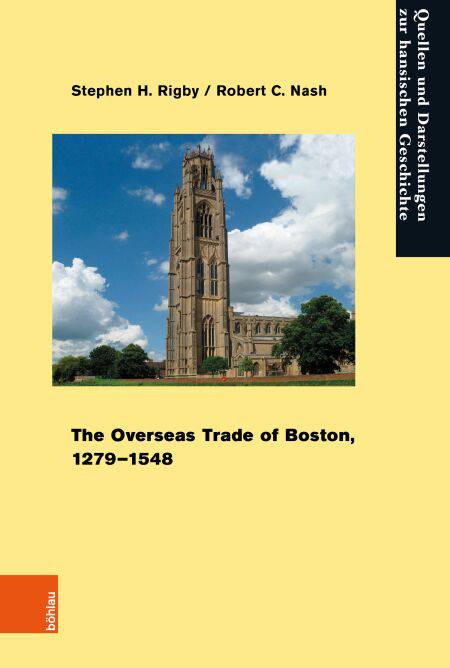
Je cadeautjes zeker op tijd in huis hebben voor de feestdagen? Kom langs in onze winkels en vind het perfecte geschenk!
- Afhalen na 1 uur in een winkel met voorraad
- Gratis thuislevering in België vanaf € 30
- Ruim aanbod met 7 miljoen producten
Je cadeautjes zeker op tijd in huis hebben voor de feestdagen? Kom langs in onze winkels en vind het perfecte geschenk!
- Afhalen na 1 uur in een winkel met voorraad
- Gratis thuislevering in België vanaf € 30
- Ruim aanbod met 7 miljoen producten
Zoeken
Omschrijving
At the start of the fourteenth century, Boston (Lincolnshire), was one of England's largest and wealthiest towns and played a leading role in the country's overseas trade, attracting merchants and commodities from as far afield as Italy, Gascony, the Low Countries, Germany and Scandinavia and was second only to London in many branches of trade. Yet, two centuries later, as the accounts of the royal customs reveal, Boston's overseas trade was of minor significance, as the capital came to dominate the nation's commerce at the expense of its provincial ports. This book offers a comprehensive guide to the evolution of the medieval English customs system and discusses the reliability of the sources which it generated. It brings together all the statistical data from Boston's enrolled customs accounts for the period from 1279 to 1548 concerning the fluctuations in volume of the port's trade, the transformation in the nature of its imports and exports and the changes in the origins of the merchants, whether English or alien, who traded there. It will be of interest to all scholars and students of medieval English towns and, in particular, to those concerned with Anglo-Hanseatic trade in the later Middle Ages.
Specificaties
Betrokkenen
- Auteur(s):
- Uitgeverij:
Inhoud
- Aantal bladzijden:
- 135
- Taal:
- Engels
- Reeks:
Eigenschappen
- Productcode (EAN):
- 9783412526597
- Verschijningsdatum:
- 13/11/2022
- Uitvoering:
- E-book
- Formaat:

Alleen bij Standaard Boekhandel
+ 32 punten op je klantenkaart van Standaard Boekhandel
Beoordelingen
We publiceren alleen reviews die voldoen aan de voorwaarden voor reviews. Bekijk onze voorwaarden voor reviews.









